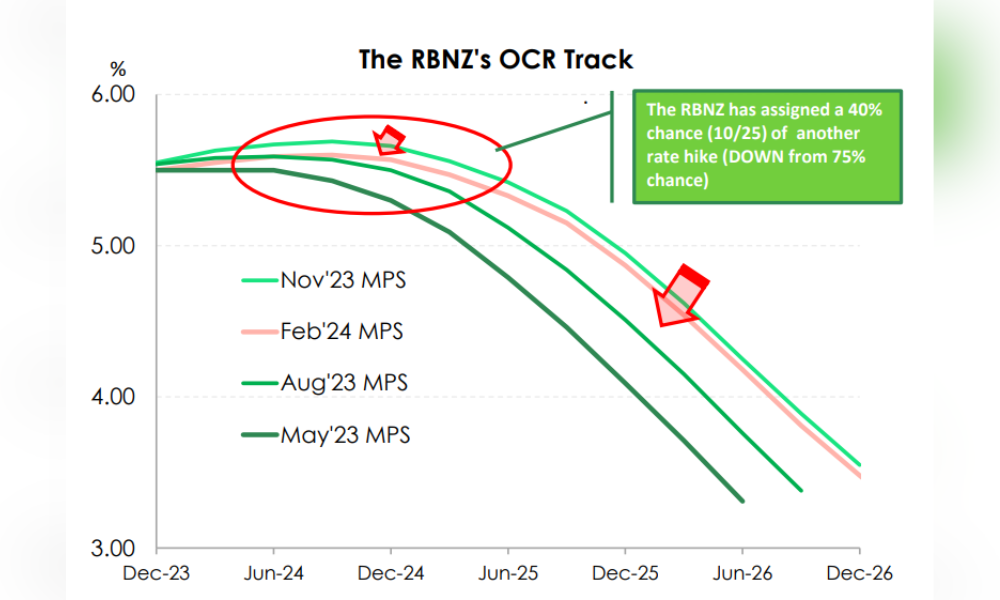The central bank holds rate, lowers OCR track

In a move described by Kiwibank senior economist Jarrod Kerr (pictured above) as “a sheep in wolves’ clothing,” the Reserve Bank (RBNZ) has taken a step back from its aggressive stance on potential rate hikes.

“After some ferocious barking, and a lot of huffing and puffing about potential rate hikes, the RBNZ stripped off their wolf skin,” Kerr said, noting the central bank’s decision to keep the cash rate unchanged at 5.5% and lower the OCR track.
Global context influences RBNZ
Kerr pointed to the broader global economic situation, where central banks have increased interest rates to control inflation and slow growth.
“Global growth is below trend, and our trading partner growth is expected to remain weak this year,” he said. This global backdrop, particularly the deflationary pressures from China and increased shipping costs due to tensions in the Red Sea, has informed RBNZ’s cautious approach.
The Fed’s role and local economic conditions
The anticipation of rate cuts by the Federal Reserve and other central banks, including the Reserve Bank of Australia (RBA), has implications for the New Zealand dollar and inflation.
Kerr emphasised the importance of the Fed acting as an “icebreaker” for other banks to follow, potentially easing tradable inflation pressures in New Zealand.
Locally, Kerr highlighted RBNZ's observations on migration and the labour market as critical.
“Signs of a slowdown in economic activity are abundant... Household consumption is weak, and business activity is subdued,” he said. Despite this, RBNZ’s latest forecasts suggested a soft economy but a slightly faster return to the target inflation band, with no further tightening deemed necessary at this point.
Economic and labour market outlook
Kerr noted the Kiwi economy’s weakness over the past 18 months, including a significant decline in economic output and flat growth in the last quarter of the previous year.
“Restrictive interest rates and below-trend global growth are weighing on demand in the economy,” he said, although rapid population growth due to strong migration is providing some support.
However, the labour market shows signs of easing capacity constraints, with unemployment expected to peak at 5.1% in the second half of the year.
“It’s clear evidence that slack is building in the market,” Kerr said, suggesting that a softening in wage inflation will contribute to a continued slowdown in domestic inflation.
Read Kiwibank economics' First View.
Get the hottest and freshest mortgage news delivered right into your inbox. Subscribe now to our FREE daily newsletter.



